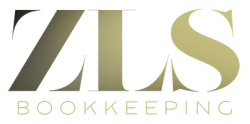FAQ
Click on any of the dropdowns below to view the responses.
What does a bookkeeper do for your business?
A bookkeeper keeps your financial records organized—tracking income, expenses, invoices, and payments—so you always know where your money is going.
Why does your business need a bookkeeper?
Without accurate books, it’s hard to make smart decisions or file taxes correctly. A bookkeeper gives you clarity and peace of mind, so you can focus on growing your business.
What is an asset, liability, equity?
- Asset: What your business owns (cash, equipment, inventory).
- Liability: What your business owes (loans, bills).
- Equity: The value left after subtracting liabilities from assets—your stake in the business.
What is the difference between a bookkeeper, accountant, tax preparer or planner?
- Bookkeeper: Tracks day-to-day financial activity.
- Accountant: Reviews, adjusts, and interprets your financial data.
- Tax Preparer: Files your taxes based on your records.
- Tax Planner: Helps you plan ahead to lower your tax bill and avoid surprises.
What are the core financial statements and why are they important?
- Profit & Loss Statement (Income Statement): Shows your business income and expenses over a period of time.
- Balance Sheet: Snapshot of your business’ health at a point in time.
- Cash Flow Statement: Shows how money moves in and out of your business.
These help you see the full picture of your business with decision quality information to make business decisions that will lead you to your goals.
Business Management
What does a business manager do for your business?
A business manager helps run your operations smoothly, from planning and staffing to budgeting and problem-solving.
Why does your business need a business manager?
They free you up to focus on your passion by handling the day-to-day logistics, improving efficiency, and helping you grow strategically.
Tax Advising
What does a tax advisor do for your business?
A tax advisor helps you understand tax rules, find deductions, and make choices that can save you money legally.
Why does your business need a tax advisor?
They help you avoid costly mistakes, reduce your tax burden, and plan ahead—so you’re not scrambling at tax time.
Financial and Investment Management
What does a financial planner do for your business?
A financial planner helps you set long-term financial goals—like saving, investing, or retirement—and builds a plan to reach them.
Why does your business need a financial planner?
They guide you in making smart money decisions today that support your future growth and stability.
Business Structures
Sole Proprietor vs LLC vs S- or C-Corporation
- Sole Proprietor: Easiest to set up. You and the business are the same legally and financially.
- LLC (Limited Liability Company): Separates your personal and business finances. Offers legal protection.
- S-Corporation: Limits taxes by letting profits pass through to your personal return. Good for small business owners.
- C-Corporation: Best for large or growing companies. More tax and legal requirements, but allows multiple investors.
We want to get to know you and learn about the passion you have for your business and clients.
Contact us…it will not cost you anything to have a call and introduce yourself to us.
